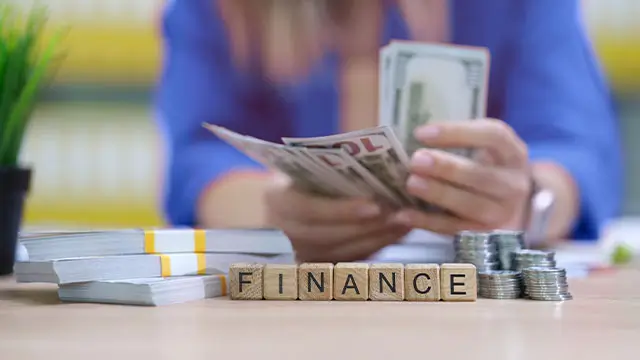Financial Minimalism: Spending Less on Things, More on Life
1. The Core Philosophy: Redefining Value
• Financial minimalism is not about deprivation or extreme frugality. It is a conscious philosophy of aligning your spending with your deepest values.
• The goal is to intentionally eliminate financial clutter—recurring subscriptions, impulse purchases, and unused possessions—that drains your money without enriching your life.
• This approach shifts the focus from owning more to experiencing more, freeing up resources for what truly generates happiness and fulfillment.

2. The Fundamental Shift: From Consumption to Connection
• Modern consumer culture equates spending with success. Financial minimalism challenges this by measuring wealth not by net worth, but by the quality of your time and relationships.
• It asks a radical question: "Does this purchase add significant value to my life, or simply add to the noise?"
• The savings achieved are not the end goal; they are the means to purchase greater freedom, security, and opportunity for meaningful experiences.
3. The Practical Foundation: The Value-Based Audit
• The first step is a thorough audit of your past three months of bank and credit card statements.
• Categorize every expense into two columns: "Adds Genuine Value" and "Adds Little/No Value." Be ruthlessly honest.
• This exercise reveals the stark difference between your stated values and your actual spending habits, providing a clear roadmap for change.
4. Key Implementation Strategy: The 24-Hour Rule
• To combat impulse spending, institute a mandatory 24-hour waiting period for any non-essential purchase over a predetermined amount (e.g., $50).
• This cooling-off period separates the initial desire from the genuine need, dramatically reducing regretful spending.
• Often, the urge to buy passes completely, and the money is preserved for something more important.
5. The "Quality over Quantity" Principle in Possessions
• Apply minimalism to your belongings. Instead of owning five mediocre items, invest in one high-quality, durable version that you truly love and use.
• This reduces waste, clutter, and the constant cycle of replacement, leading to long-term savings and greater satisfaction.
• This principle applies to everything from clothing and cookware to electronics and furniture.
6. Budgeting for Freedom: The "Life-First" Budget
• Create a budget that prioritizes life-enhancing expenditures first. Allocate funds deliberately to categories like:
Travel and experiences with loved ones.
Learning new skills or hobbies.
Health and wellness (e.g., gym membership, healthy food).
Time-saving services (e.g., a cleaner to free up weekend time).
• What remains can be allocated to routine bills and discretionary spending, ensuring your money serves your life goals.
7. The Psychological Benefit: Reducing Decision Fatigue and Anxiety
• Having fewer possessions and fewer financial commitments drastically reduces the mental load of managing them.
• With less clutter, both physical and financial, you experience reduced anxiety and greater mental clarity.
• This creates space for creativity, relaxation, and deeper engagement with the present moment.
8. Cultivating a Mindset of Abundance
• Financial minimalism fosters an abundance mindset based on gratitude for what you already have.
• By consciously appreciating non-material sources of joy—relationships, nature, personal growth—you naturally desire to spend less on material goods.
• This shifts your source of validation from external, purchased status symbols to internal, earned fulfillment.
9. The Long-Term Impact: Financial Resilience and Personal Freedom
• The financial savings accumulated through this lifestyle directly build security, creating a larger emergency fund and more investment capital.
• This leads to greater options: the ability to change careers, take a sabbatical, or retire earlier.
• Ultimately, financial minimalism is a powerful tool for designing a life of purpose, where your resources are dedicated to building memories and legacy, not just accumulating stuff.
10. Conclusion: The Richness of Enough
• Financial minimalism is a personalized journey toward defining what "enough" means for you.
• It is the intentional promotion of what we truly need and value, and the removal of everything that distracts us from it.
• By spending less on things, you ultimately invest more in life itself, discovering a form of wealth that is far more profound and lasting than monetary value alone.


 More Popular Reports
More Popular Reports
-
 A Beginner’s Guide to Affiliate Marketing with Smart Tech Toolsaffiliate marketing for beginners smart tech tools passive income online business niche selection affiliate programs
A Beginner’s Guide to Affiliate Marketing with Smart Tech Toolsaffiliate marketing for beginners smart tech tools passive income online business niche selection affiliate programs -
 The App Store Gold Rush: A Realistic Guide to Making Money with Mobile AppsApp Store success mobile app revenue App Store Optimization ASO strategies app business models MVP validation freemium model
The App Store Gold Rush: A Realistic Guide to Making Money with Mobile AppsApp Store success mobile app revenue App Store Optimization ASO strategies app business models MVP validation freemium model

 Share
Share
